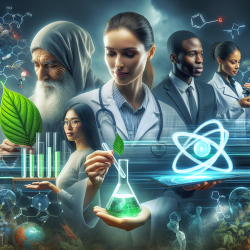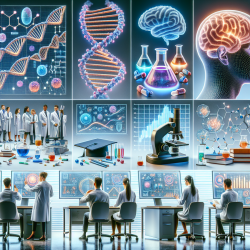Chemistry holds a unique position among the sciences, bridging the gap between theoretical knowledge and practical application. This dual nature brings with it a distinct set of ethical challenges. As chemists create new substances and explore the molecular world, they must navigate these challenges to ensure that their work contributes positively to society while minimizing potential harm.
The Unique Ethical Challenges in Chemistry
The article "Ethics in Science: The Unique Consequences of Chemistry" by Jeffrey Kovac highlights several ethical issues inherent to the field of chemistry. These issues arise from chemistry's central activity—synthesis—and its impact on human life and the environment. Chemists are tasked with creating thousands of new substances each year, some beneficial and others potentially harmful.
Chemical Synthesis and Its Ethical Implications
Synthesis is at the heart of chemistry, allowing chemists to create new molecules that can improve lives or pose risks. Ethical considerations in synthesis include assessing the potential threats posed by new substances and weighing these against their benefits. For instance, while new drugs can save lives, they may also have unforeseen side effects.
Pure vs. Applied Research
Kovac discusses the distinction between pure and applied research, emphasizing that much of chemistry falls into what is known as Pasteur's quadrant—where fundamental understanding is pursued alongside practical applications. This dual motivation requires chemists to carefully consider the ethical implications of their work, ensuring that it serves both scientific advancement and societal needs.
Implementing Ethical Practices in Chemistry
Chemists can improve their practice by embracing ethical principles outlined in professional codes of conduct. These codes emphasize responsibilities to public welfare, open communication, and prioritizing human welfare over commercial interests.
Green Chemistry: A Path Forward
One way chemists can address ethical concerns is through green chemistry. This approach focuses on developing environmentally friendly methods for chemical production, reducing waste, and minimizing harm to the environment. By prioritizing sustainability, chemists can contribute to a healthier planet while advancing scientific knowledge.
Professional Ethics and Moral Ideals
Kovac argues that science should be considered a profession guided by moral ideals beyond legal obligations. Chemists should strive for integrity in research, open communication, and shared-fate individualism—prioritizing projects that benefit society as a whole rather than focusing solely on personal or commercial gain.
The Role of Education and Research
Education plays a crucial role in instilling ethical values in future chemists. By incorporating case studies on green chemistry and ethical dilemmas into curricula, educators can prepare students to navigate complex moral landscapes in their professional careers.
Encouraging Further Research
Kovac's article encourages practitioners to engage in further research on ethics in chemistry. By exploring topics such as the responsible conduct of research and the development of non-toxic substances, chemists can contribute to a more ethical practice that aligns with societal values.
Conclusion: A Call to Action for Chemists
The ethical challenges faced by chemists are significant but not insurmountable. By embracing professional ethics, prioritizing sustainability through green chemistry, and engaging in continuous education and research, chemists can ensure that their work contributes positively to society. As we move forward, it is essential for chemists to reflect on their responsibilities and strive for practices that uphold the highest ethical standards.
To read the original research paper, please follow this link: Ethics in Science: The Unique Consequences of Chemistry










